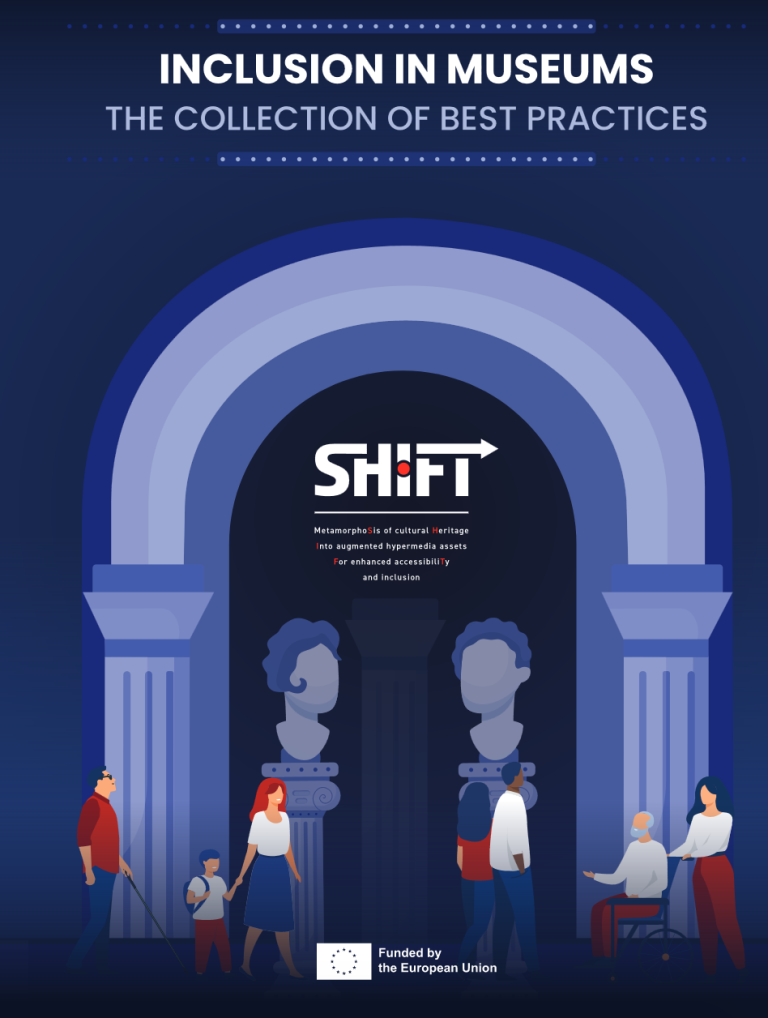SHIFT publication is out offering examples from Bosnia and Herzegovina, Montenegro, Serbia, North Macedonia, Hungary, and Romania.
Heritage experts describe the process of implementing inclusive strategies, identifying successes, and highlighting obstacles encountered as well as those to overcome in the future.

Building on previous results highlighting the evolving landscape of museum accessibility and inclusion in Europe, this publication showcases transformative efforts within galleries, libraries, archives, museums, and other cultural institutions with a mission to provide access to knowledge (GLAM). Despite a legal framework that only partially guides change and limited financial support, numerous institutions have demonstrated commendable progress. These improvements, spearheaded by dedicated individuals and teams, reflect a commitment to enhancing equal opportunities and fostering an inclusive environment.
The initiatives undertaken by museums across Europe are notable for their diverse approaches to accessibility. From tactile exhibitions and audio descriptions to digital innovations like QR codes, NFC, and VR experiences, these efforts cater not only to visitors with disabilities but also enrich the cultural experience for all audience members. Collaborative projects between GLAM professionals and persons with disabilities and their organizations have been instrumental in ensuring programs are inclusive and participatory, reflecting the principle of “Nothing About Us Without Us.” Prominent national or large museums have implemented comprehensive sensory and inclusive programs, and local community museums have also made significant strides, demonstrating that impactful change can occur at various scales.
While challenges persist, ongoing initiatives in museums exemplify profound SHIFTS towards accessibility and inclusivity. These endeavors not only improve visitor experiences but also affirm museums’ roles as socially responsible entities committed to meeting the diverse needs of their communities.
The publication is edited by Anida Manko and Milena Milošević Micić and published by the Balkan Museum Network, partner organization in the SHIFT Project.
Click here to download the publication
For those who experience difficulties with reading, an audiobook version of the publication is also available:
